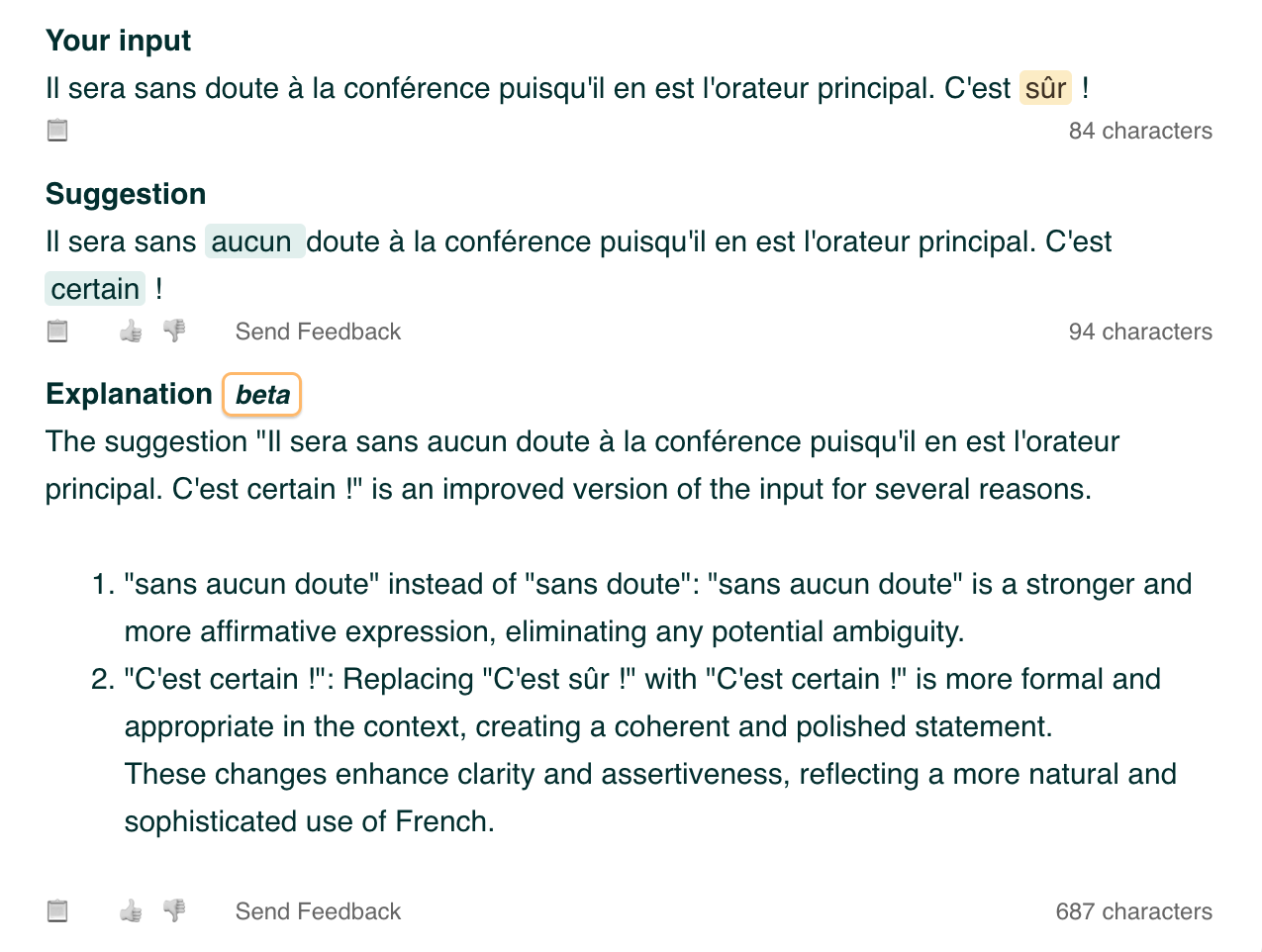“Sans Doute” vs “Sans Aucun Doute” in French
Ever found yourself confidently saying “Sans doute” in French, only to realize you might have just expressed uncertainty rather than certainty? It’s a classic language learner’s faux pas that can lead to some amusing misunderstandings. This actually happened to Brian quite recently, even though he’s fluent in French now! Let’s clear up the confusion between “sans doute” and “sans aucun doute” so you can navigate these expressions with confidence.
Understanding and Using “Sans doute” and “Sans aucun doute”
“Sans doute” translates literally to “without doubt,” but in everyday French, it means “probably” or “likely.” It is used to express a degree of uncertainty or probability. For example:
- “Il viendra sans doute demain.” (He will probably come tomorrow.)
- “Sans doute est-il en retard à cause du trafic.” (He is probably late because of traffic.)
In these sentences, “sans doute” suggests that there is a high likelihood of something happening, but it is not certain.
“Sans aucun doute” also translates to “without any doubt,” and it means “without a doubt” or “certainly.” It is used to express complete certainty and confidence. For example:
- “Elle réussira sans aucun doute.” (She will certainly succeed.)
- “Sans aucun doute, c’est la meilleure solution.” (Without a doubt, it’s the best solution.)
These sentences convey that there is no doubt about the outcome; it is guaranteed.
Comparative Usage
Let’s look at some side-by-side examples to highlight the differences:
- “Il viendra sans doute.” (He will probably come.)
- “Il viendra sans aucun doute.” (He will certainly come.)
- “C’est sans doute vrai.” (It’s probably true.)
- “C’est sans aucun doute vrai.” (It’s certainly true.)
As you can see, “Sans doute” implies some uncertainty, while “Sans aucun doute” conveys complete certainty.
How Nativish can help you choose the right expression
Unsure of which expression to use in a given sentence? Nativish, our writing assistant application, can help you select the correct idiom based on the context of your sentence. Just input your text, and Nativish will suggest corrections to ensure your sentence is idiomatic and accurate… including the proper use of “Sans doute” and “Sans aucun doute”!

Nativish helps select the correct idiom based on context
Conclusion
Isn’t it interesting that an expression that literally means “without doubt” can sometimes leave room for doubt? French is full of these delightful linguistic quirks that keep us on our toes. With a little practice and the right tools (we’re partial to Nativish, and it’s free!), you can master these nuances, elevate your French language skills to native level, and communicate with confidence. Bonne chance!